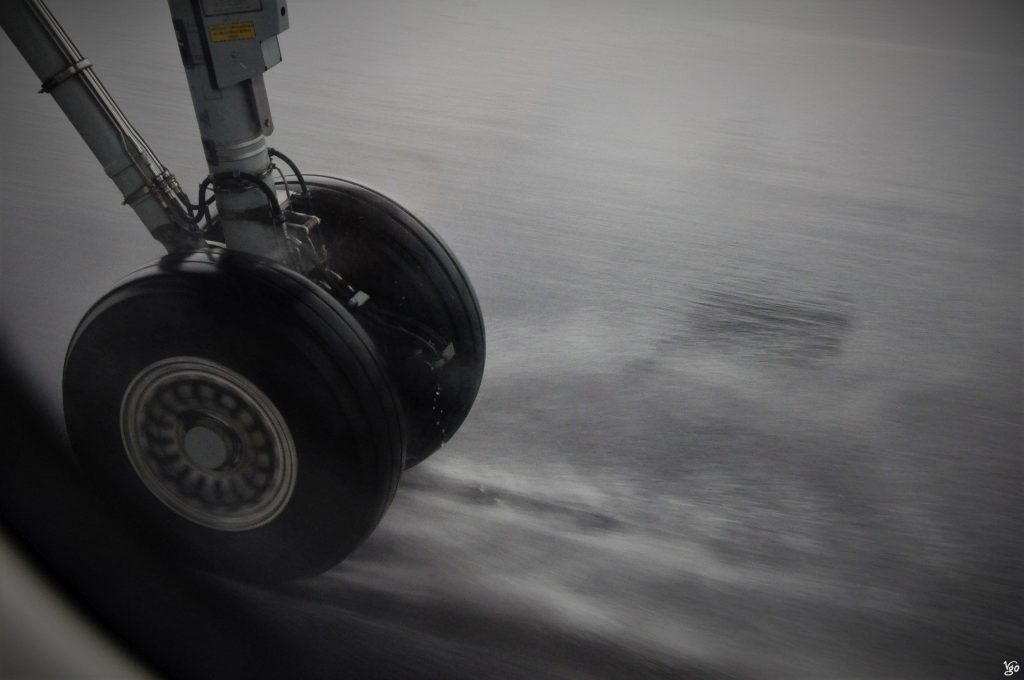
Addis Ababa airport. As for a farewell, Africa has given me a treat of what the negative stereotypes about her hold in store: cancelled flights, bad service delivery, lack of water, and now quite some chaos at the airport. I feel obliged to add: obstacles like this amassed, that’s new to me here. My Africa year up to here, the last few days, has been mostly smooth, so much so that I can wholeheartedly dismiss the negative stereotypes as prejudices. That, however, doesn’t mean negatives don’t occur. They are just not as “typical” as the prejudices would have them. So here I go, through a row of obstacles on my way out.
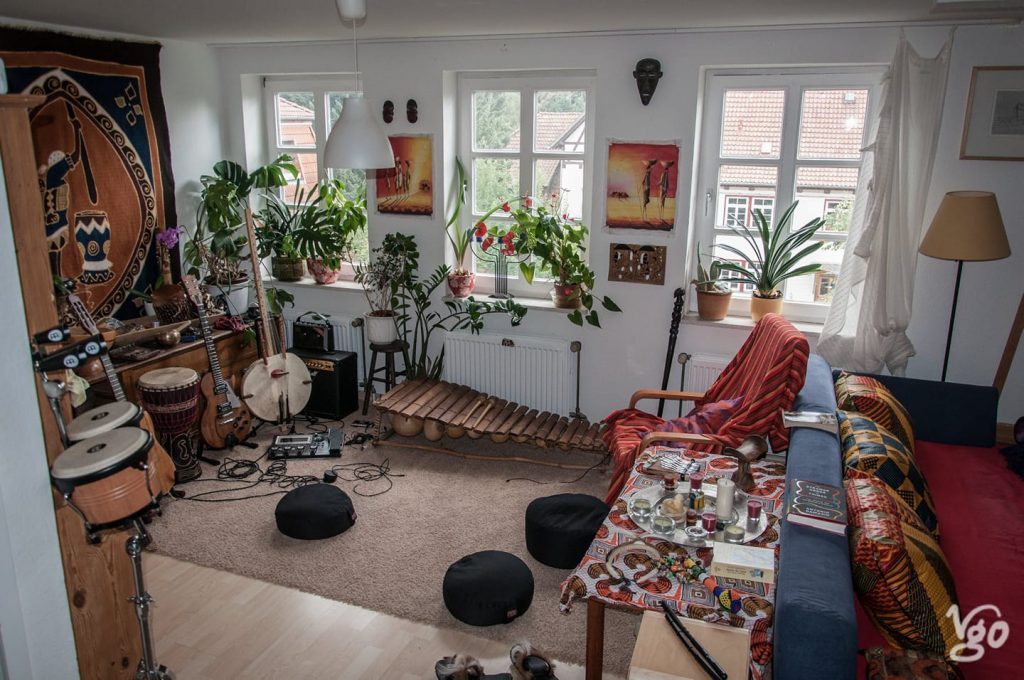
the music corner in my flat
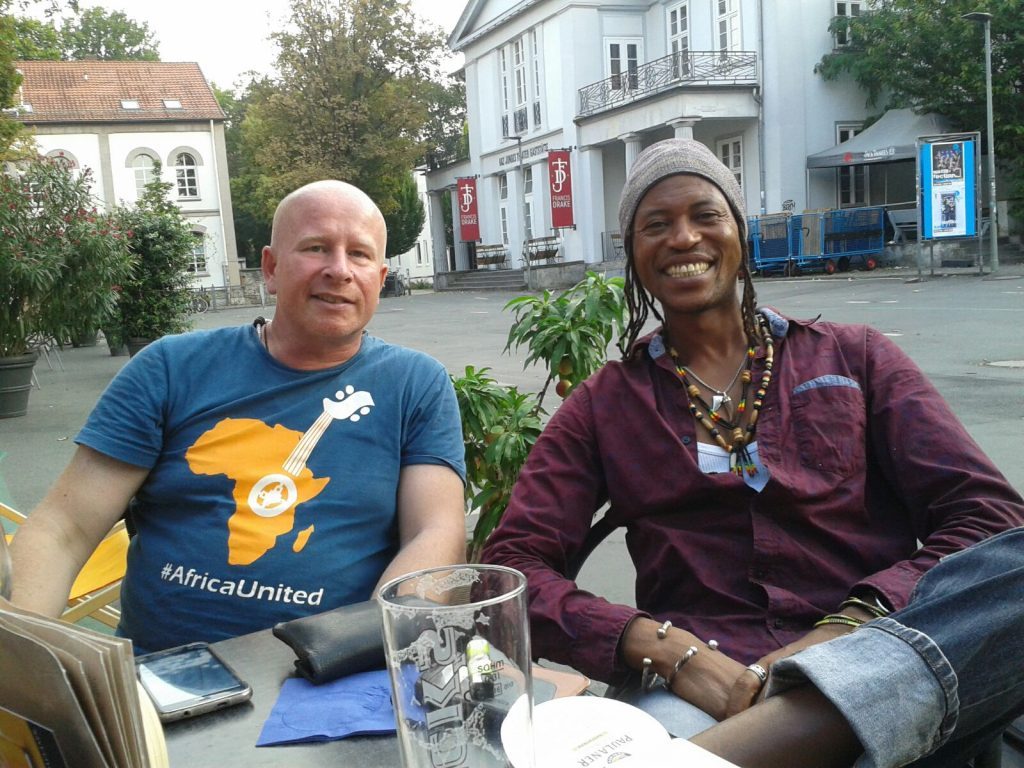
back with Ibs and my drumming group
I’m not terribly excited to get back to Germany, though I am a bit tired of traveling. Not as much as the American lady who I met when I visited the Banna tribe bull-jumping. She’s been traveling for two years, and says about herself that she’s suffering from a travel burnout, or so. When she mentioned that she’s carrying on for a bit longer, I asked her a therapist’s question: whether she knows this from elsewhere in her life, to carry on when she is worn out. She said she did, but we had no time further to elaborate on this as the ceremony began.
The three days in Germany I will spend at therapy training at the Eichgrund Institut, and that means with some of my favourite people here (just like before Christmas). During the weekend, I begin to be longing for my flat. For withdrawal, after a whole year “out there” … In this German environment that I enter again, it feels like I need a safe space all the more! After a detour via my parents’ place I do find my Göttingen flat well-kept by Chahira, to whom I had sublet it for that year.
But step by step … Final moments in Africa:
Encounter with German tourists
As I am on my way out of Africa, I encounter a group of Germans at the gate. We’ve been waiting for a while now, they longer than me because unlike me they didn’t jump the queue at the security check. While everybody is waiting annoyed though patiently, these Germans pester the environment with pointless snide remarks about the airport. Some of the remarks, for instance about how airport shuttle drivers obviously avoid doing their work, carry racist undertones, and of course these tourists for whom this is most probably a one-off have no evidence whatsoever for their toxic claims. I am pissed, though I’m trying to distract myself from the toxic atmosphere these people spread. I consider tearing my boarding card to pieces and wanting to turn on my heel and stay in Africa. Why should I go back to a country with such annoying people? Their sense of entitlement (because I paid, the world has to function my way) is as disgusting as it is futile. “Africa”, at least, will teach you this lesson if you are willing to hear it.
They take it a step further. Two ladies enter the scene, an old and a young one, dressed in what looks like rural, traditional attire. They shove themselves through the crowd quite forcefully to reach the counter where the checking of boarding passes has started. These Germans immediately “know” the reason for this behavior: plain rudeness. At least, their own behavior makes it clear. They shout at these two ladies, use rude language, pointlessly in German, such as “diese Weiber” (‘these bitches’). Admittedly, I am irritated by the ladies’ behavior too, for a moment, before I realize I know nothing of their motives. When they reach the service lady at the counter the lady tells them that they are at the wrong gate, and they fail to understand. I have sufficient proof for what had dawned on me in the meantime: these two must come from some rural area, are quite certainly unable to speak or read English, and probably unable to read Amharic as well, and what with the general chaos at Bole International must be totally panicky to forfeit the tickets that probably cost them a fortune. Thus my story, and in the words of David Foster Wallace, my story is not necessarily true, but also not unlikely, and perhaps more likely to be true than the Germans’ immediate certainty that these women were plain rude.
I already had enough. Thankfully, I came to sit near a wonderful old Ethiopian lady, a former politician and medical doctor, whose intelligence and grace redeemed the remainder of the late evening until the plane left the runway shortly after midnight.
Welcome in Germany: The land of the Dead …
… or so my first hour felt. Upon my arrival at Frankfurt International, I leave the plane in silence. Walk through automatized immigration in silence. Pick up my guitar from the oversized-luggage belt in silence – under the eyes of a customs officer, in silence. Get a ticket for the city train from a machine, in silence. Watch people on the train, all silent. In silence I run through these steps in imaginary or experienced African settings, and oh the noise, the questions (“you a musician?”, “marry me!”, …). …. Thankfully, coffee is still being served by a person you must talk to to place an order in the place where I have breakfast. Welcome to Germany.
Later on that day, however, Germany or whatever made me the following gifts: great chat with coffee house waiter for solid three hours. I go to a swimming pool in Groß Umstadt, they keep my luggage at the guards house and give me a towel to keep. The bus driver lets me ride for free. A DHL delivery guy gives me a lift to where I would have had to walk, for free, amidst the parcels. Wow! They were one German-Croatian, one German-Turk, one German and one guy I guess must hail from Poland, judging by his accent. Welcome to Germany, again!
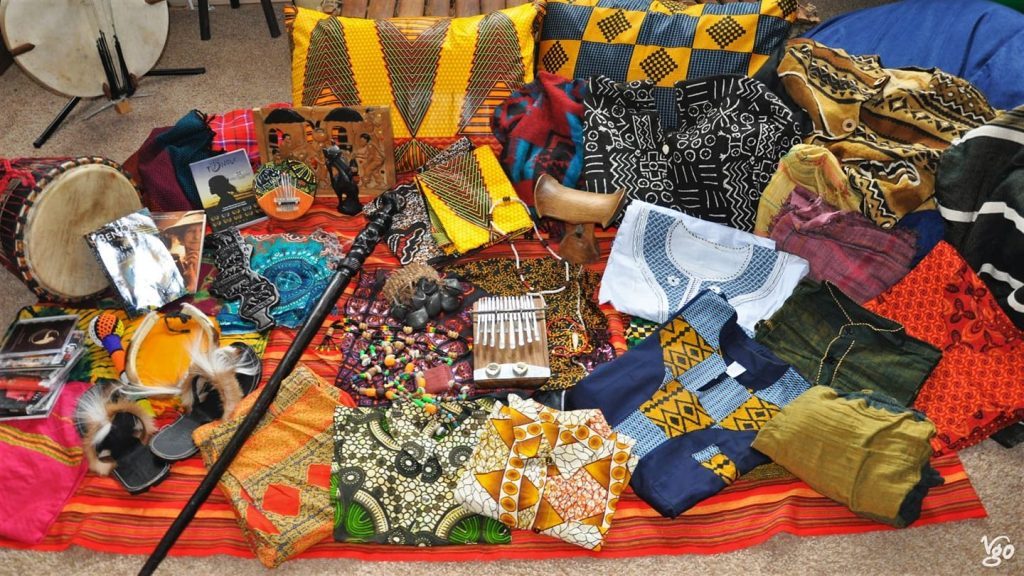
Fast forward. Back in my house, the old lady from downstairs opens the door for me, welcoming me and filling me in with all the gossip, who’s left, who’s moved in, and so on. i love the welcome to house that I love mostly because of the people that live here. Eventually I have time to rest in my flat, for once, close the door to MY PLACE, unpack all my spoils, and start facing the fact that my Africa year is over.
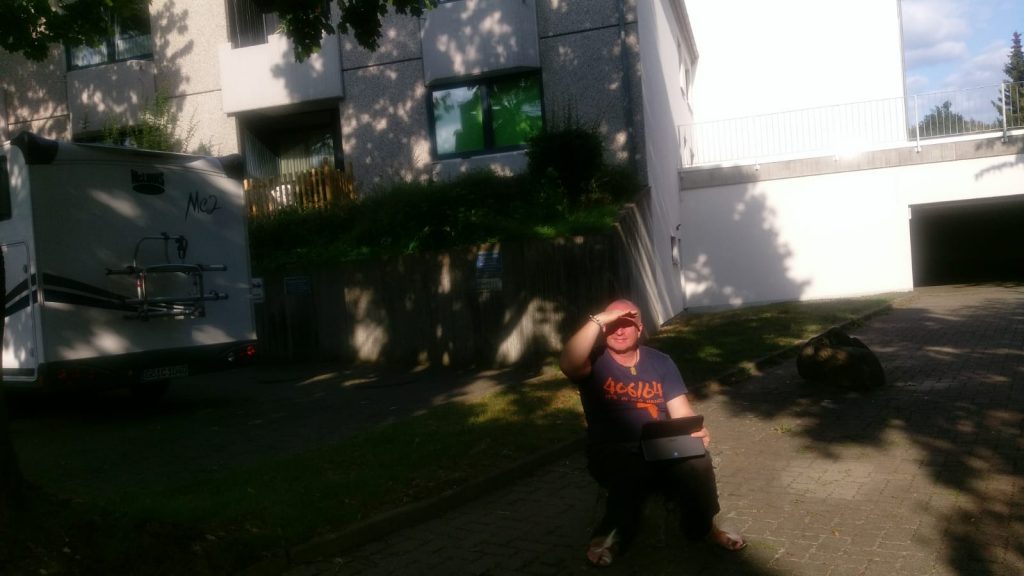
trying to get connection outside my house until I have WLAN again
However, as many German friends and colleagues welcome me back, as they say, “im richtigen Leben”, I notice that I’m struggling to accept that, and I can’t even find an adequate translation that does not spill the beans over German obsessions with “correctness”. Correctness, the aim to be doing every thing “right” is something I have experienced as the source of disappointment and lifelessness. No, I refuse: if this is “real life”, I will not join in again. Not fully. I know what life is, I’m not interested in “correct life”, whatever that is, and “real life” surely is not really here. I will bide my time in the diaspora here until …
